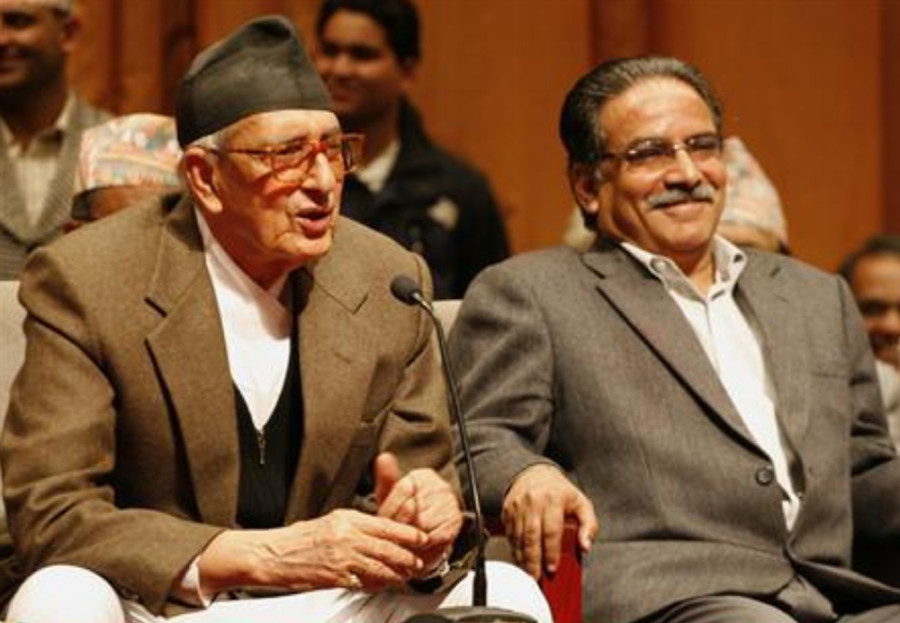Miscellaneous
Government to provide term extension for transitional justice bodies, but not for officials in the commissions
The Cabinet on Monday night decided to extend the terms of the two transitional justice bodies by at least one year—but not of the officials. The move may placate the conflict victims even as it lacks substance.
Binod Ghimire
The Cabinet on Monday night decided to extend the terms of the two transitional justice bodies by at least one year—but not of the officials. The move that may placate the conflict victims even as it lacks substance.
In line with the Cabinet decision, the government on Tuesday registered a bill to amend the Enforced Disappearances Enquiry, Truth and Reconciliation Commission Act-2014 in the National Assembly Secretariat.
According to sources, the bill seeks to extend the tenures of the Truth and Reconciliation Commission (TRC) and the Commission of Investigation on Enforced Disappeared Persons (CIEDP). However, the chairpersons and members of the commissions will remain in office only until mid-April.
This move largely addresses the concerns of the conflict victims who have long been demanding revamping of the two commissions, saying that they failed to deliver in their four-year tenures.
The government can relieve the officials of their duties even before mid-
April, if need be, the sources said.
“The amendment bill gives room for extending the terms of the two commissions by one more year,” a senior government official involved in drafting the bill told the Post seeking anonymity because of the sensitivity of the matter.
With the terms of the two commissions, formed in 2015, set to expire on February 9, concerns were growing about the future of transitional justice process which has been dragging on for more than a decade since a peace deal signed between the then seven-party alliance and the rebel Maoists, which formally ended the decade-long civil war in 2006.
But unwillingness, largely on the part of the political leadership, and political instability over the years have left conflict victims waiting for justice.
Of late, conflict victims were calling for “restructuring” the two commissions, seeking their larger role in the process, and demanding a new mechanism to steer the transitional justice process forward.
Amid this, the international community last week urged the government to clarify to the public its plans to take the transitional justice process forward in 2019 and called for ensuring broader participation of conflict victims, civil society and the stakeholders.
Officials on Saturday told the Post that the government was working to form a law minister-led mechanism to hold consultations with different stakeholders, including the conflict victims, to what they said “conclude the entire process”.
But there was a dramatic turn of events, with a section of conflict victims objecting to the idea of any new mechanism. The Conflict Victims National Network, a group that was formed after a split in the Conflict Victims Common Platform, said it did not want any new mechanism. But Conflict Victims Common Platform stuck with its demand for a new mechanism. With conflict victims divided over the new mechanism, the government was caught in a bind.
With the latest move of removing the leadership of the two commissions, the government seems to have for now managed to allay the concerns of the conflict victims’ associations, which termed the decision “a welcome step”.
But it is still unclear how the transitional justice process will move forward.
According to a source, the amendment bill does not deal with other crucial issues, including amending the transitional justice law in line with the 2015 Supreme Court verdict that struck down the provision of amnesty for those found guilty of serious human rights violations, and international obligations.
“The broader issues will be resolved after consultation with the stakeholders once the term of the commissions is extended,” said the source.
Asked about the proposal the bill has in relation to not giving extension to their terms, the officials said “we are happy to quit”.
“I was planning to quit even if the government decided to continue our tenure,” Lila Udasi Khanal, a member of the TRC, told the Post. “I will not wait until April. Nor will our chairperson.”
Lokendra Mallick, chairman of the disappearance commission, said he would comment only after going through the bill. However, I am happy to quit any time, he told the Post.
Even though conflict victims have been demanding a revamp of the commissions, including change of officials, there are several factors that have hampered the transitional justice process.
The two commissions are hamstrung by a lack of resources—and necessary laws.
But conflict victims say they utterly failed and did precious little in the last four years.
The TRC has received 63,000 cases but hasn’t yet completed detailed investigation into a single case. Similarly, the disappearance commission which is sitting on around 3,000 complaints has yet to resolve any of them.
The amendment bill now has to be endorsed by both the Houses of Parliament and authenticated by the President to get legal status.
It takes more than 10 days if the due process is followed.
With the Houses scheduled to meet on Thursday, there are hardly seven working days until February 9, the day the terms of the two commissions expire. “Both the Houses might need to suspend some clauses of their regulations to meet the deadline,” Roj Nath Pandey, spokesperson for the Parliament Secretariat, told the Post.




 19.12°C Kathmandu
19.12°C Kathmandu










